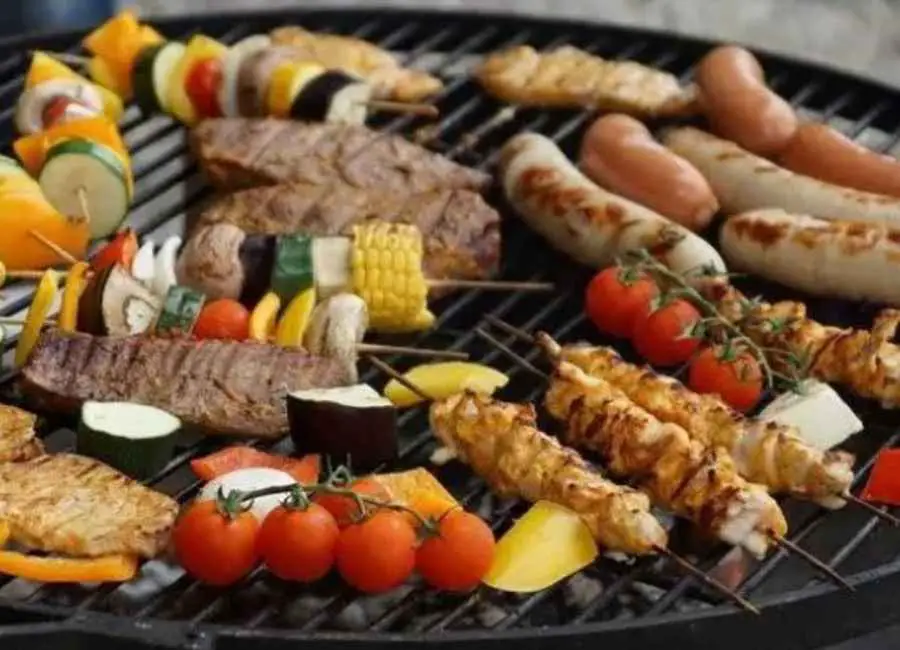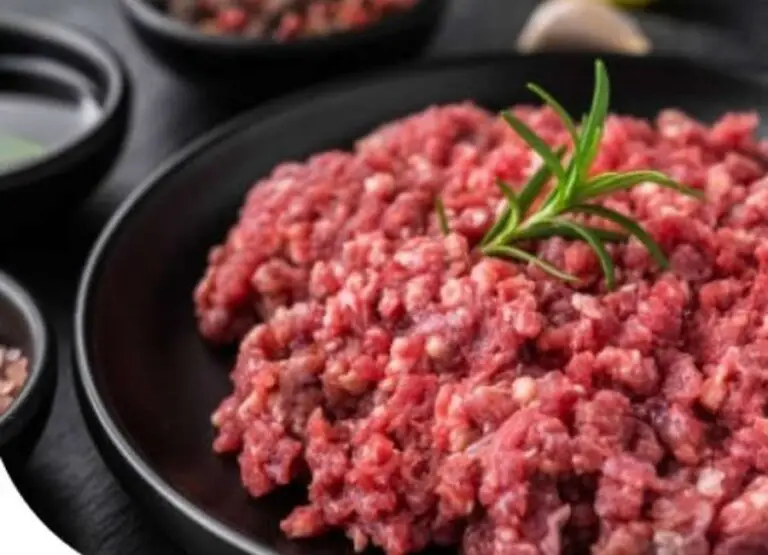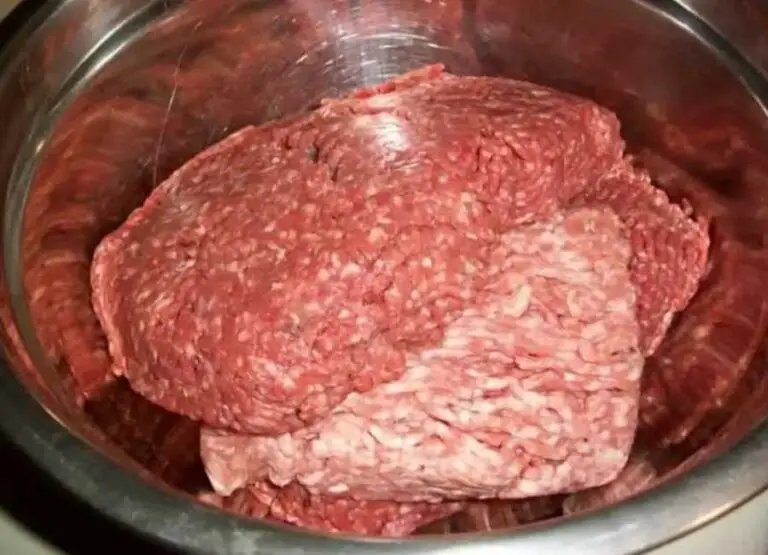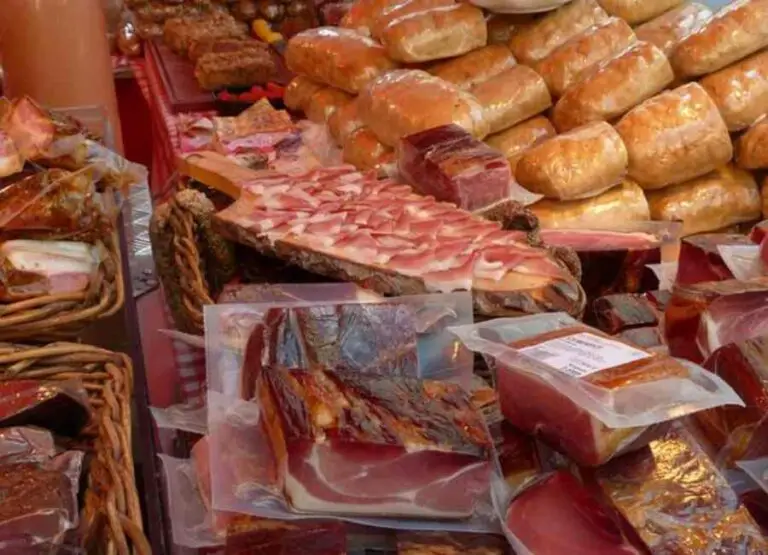Is Grilling Bad For You (12 Pros & Cons Of Grilling)
Grilling is one of the most used methods of processing food, but is grilling bad for you? Read through to find out if grilling is good or bad for you.
Grilling is one of America’s favorite pastimes. However, there are some things you should be aware of before you start grilling again.
With the warmer months coming up, many folks will start to grill more often. But did you know that grilling can be harmful?
What is the grilling of food?
Grilling is a method of cooking in which dry heat is given to the food’s surface from above, below, or to the side.
Grilling uses a lot of direct, radiant heat and is best for rapidly cooking meat and vegetables.
There are many reasons why you might want to grill.
Whether it’s because you just want a burger on the go, or because you’re on the go and don’t have time to cook, grilling offers convenience for on-the-go people.
However, some people are afraid of grilling because of health concerns.
Is grilling bad for you
Grilling food can expose you to many different health risks, these include the chemicals that are released into the air when burning meat, as well as the higher levels of cancer-causing compounds found in grilled meats or foods.
Grilling is one of the most used ways to cook your favorite foods. It can be an enjoyable way to spend an evening with friends and family, but grilling has its drawbacks.
Some people are concerned about the chemicals released from charcoals or gas flames.
Grilling is not bad for you if you know how to do it properly and do it with moderation, not on a daily basis. And most importantly, controlling grilling temperature.
This post will examine if grilling is bad for you.
Pros and cons of grilling food
Here are some pros and cons of grilling food you should know that may help you make your decision if grilling is the right way for you:
Grilling may increase LDL cholesterol
LDL cholesterol is known as the “bad” cholesterol because it builds up in the walls of your blood vessels, increasing your risk of heart attack or stroke.
Cholesterol, on the other hand, isn’t entirely bad. It’s necessary for your body to preserve its neurons and produce healthy cells and hormones.
Some cholesterol is obtained from the foods you eat, and the rest is produced by your liver.
Proteins transport it where it has to go since they won’t disintegrate in blood. Lipoproteins are the carriers in question.
If you frequently grill rich red meats instead of fresh fish or a slimmer cut of meat such as flank steak, you may be putting yourself at risk for cardiovascular problems, notably an increase in LDL cholesterol.
As a result of this rise, you’re more likely to get cardiovascular disease.
Too much saturated fat, whether grilled, fried, baked, or otherwise, is not a heart-healthy diet option.
Grilling needs a certain level of proficiency
Grilling need knowledge of how to do it properly. Believe it or not, there is science behind grilling.
It is never a good idea to focus just on looks without considering the underlying implications.
Grilling is more than simply a cooking method, however, it is both an art and a talent.
It takes effort to develop the sight and nose needed to recognize superb grilled food.
Grilling may increase fat intake
Grilling is often associated with high-fat foods such as burgers, hot dogs, and sausages.
This implies you’re probably consuming more saturated fat, calories, and cholesterol than you think.
Moderation is important, as it is with everything else. Burgers and sausages should be saved for exceptional occasions.
For heart-healthy grilling, stick to a normal meal of vegetables, poultry, and fish.
Grilled food can cause constipation
Hot dogs that are highly processed and lack of adequate hydration (frequently substituted by beer, which can cause uncomfortable bloating) deprive your diet of the nutrients it needs to be flexible and active.
Meat’s high iron level is one of the reasons it causes constipation. While iron in the diet is essential for muscular maintenance and blood richness, too much of it causes hard, immobile stools.
Meat, of course, has no fiber, which means that it arrives in the colon totally digested and rock-hard, even without the iron.
Find out more about meat and constipation.
Grilling can increase the risk of cancer
When animal proteins like beef, chicken, pig, or fish are cooked, certain chemicals known as HCAs (heterocyclic amines) and PAHs (polycyclic aromatic hydrocarbons) are produced.
The number of these compounds rises drastically as temperature and cooking time rise. These tend to be carcinogenic in animals when given in big amounts.
Grilling can increase inflammation
If you choose grilled meats cooked over high heat over plant-based foods, you may be setting yourself up for potential health problems.
Advanced glycation end products (AGEs), also known as glycotoxins, are a by-product of grilling meats.
Data shows that when food is grilled, the AGEs proliferate and are subsequently swallowed, this can result in higher levels of inflammation.
Inflammation is connected to the development of a variety of chronic illnesses, including cancer.
Grilling at high-temperature causes charring which leads to cancer
Cooking protein dishes until they’re fully cooked extends the time it takes for HCAs to develop, but it also increases browning and the danger of charring, both of which enhance PAH formation.
Allow the flames to go down before putting the meat on the grill, then use one of the faster cooking methods listed above.
If a piece of the meal becomes burnt, chop it off and discard it.
Grilling provides a convenient option for cooking
Grills cook food quickly, minimizing the amount of time it takes to prepare supper.
Grills prepare food in a fraction of the time that baking or frying takes, making them both handy and efficient.
Note: Grills also allow you to enjoy the beautiful outdoors without having to leave the house.
Furthermore, people are drawn in by their distinct scents to enjoy the sights, aromas, and sounds of grilled food, which is ideal for mingling.
Grilling provides better health benefits than some cooking methods
Grilled food contains substantially less fat and calories than fried meals.
Fried food consumption has been linked to obesity, high blood pressure, heart disease, and stroke.
When food is fried, even low-fat foods become rich in fat.
Meal grilled on a grill, on the other hand, is not saturated with fat, and any fat in the food seeps out, resulting in far fewer calories and fat.
Grilled foods are less oily
Grilled foods tend to be less oily than food that is fried or deep-fried.
However, this also depends on the types of food you grill and on the temperature you are using in grilling.
grilling.
Grilling naturally reduces fat consumption. The excess fat from whatever you’re grilling seeps down through the grates as you cook.
Grilled foods, such as vegetables and meat, retain more vitamins, minerals, and nutrients.
You can also decrease some of the possibly hazardous compounds that develop during the grilling process.
Grilling adds a smoky flavor to food
The scent is one aspect that impacts our perception of taste, and grilling adds a smoky flavor that can add an extra punch to your meal.
When the meat liquid starts dripping and evaporates with the smoke, the barbecue emits that smoky, wonderful scent. This comforting scent makes you eager to dive into your meal.
The flavor is the highlight of the encounter. What good is it to stimulate your other senses if you don’t get to taste the food you grilled?
Whatever the case may be, we are confident that grilled food will always taste better than non-grilled food.
Who would have guessed that, in addition to the health and sensory benefits that grilling brings, it also plays a role in developing social relationships?
When you’re outside, your mind is influenced to put down the phone and spend time with your friends instead.
Teens and children can kick a ball around or play Frisbee. For adults, nothing beats a good, pleasant conversation over a grilled burger and a cool drink.
Find out how much-smoked meat is healthy for you.
Wrapping up on the cons of grilling food
You might want to rethink if you enjoy the flavor of burnt meat.
In animal experiments, charring induces the production of HAAs, which have been related to cancer.
Furthermore, grilling meats over open flames, where fat can drop and generate smoke, can result in the production of polycyclic aromatic hydrocarbons (PAHs).
PAHs have also been related to the development of cancer.
When grilling, keep an eye on the heat level and the temperature of the meat, poultry, and fish to substantially minimize HAAs and PAHs.
Wrapping up on the pros of grilling food
Grilling is a quick and easy method to prepare a weeknight meal or entertain guests. And to provide a great source of flavor and more.
Grilling small cuts of meat like lamb tenderloin, strip steak, flank steak, and rib-eye is straightforward. And can be done in a flash.
Marinated grilled meat is more delicate and delectable.
Marinades with little or no sugar have also been shown to decrease the development of cancer-causing heterocyclic aromatic amines and to avoid the charring of meat.
I hope your question is grilling bad for you has been cleared, check out other interesting topics about meat:
Steps to reduce the cancer effects of grilling meat
Grilling meat may cause cancer as it produces carcinogens, here are some helpful tips:
- Marinate meat in antioxidant-rich ingredients like onion, garlic, lemon juice, turmeric, cinnamon, virgin olive oil, and beer for a few hours before grilling (non-alcoholic Pilsner).
- Instead of being well done, cook the steak medium rare. When compared to medium rare steak, well-done steak has three times the amount of carcinogens.
- When grilling, avoid charring your meat too much. Note: When cooking kebabs, you may want to flip them more often to ensure uniform cooking and prevent the meat from browning on one side.
- Only use natural charcoal instead of lighter fluid. Cooking oil and a paper towel can be used instead of lighter fluid.
- With an onion, clean the grill grates and oil them with a paper towel and tongs.
- Remove any excess fat from the meat. When fat drops overheated charcoal, it ignites, producing cancer-causing smoke. It’s critical to get rid of as much fat as possible. Before cooking the chicken, we strongly advise you to remove the skin.







![Can You Dehydrate Raw Meat [Answered]](https://foodcreeks.com/wp-content/uploads/2023/02/Can-You-Dehydrate-Raw-Meat-768x555.jpg)